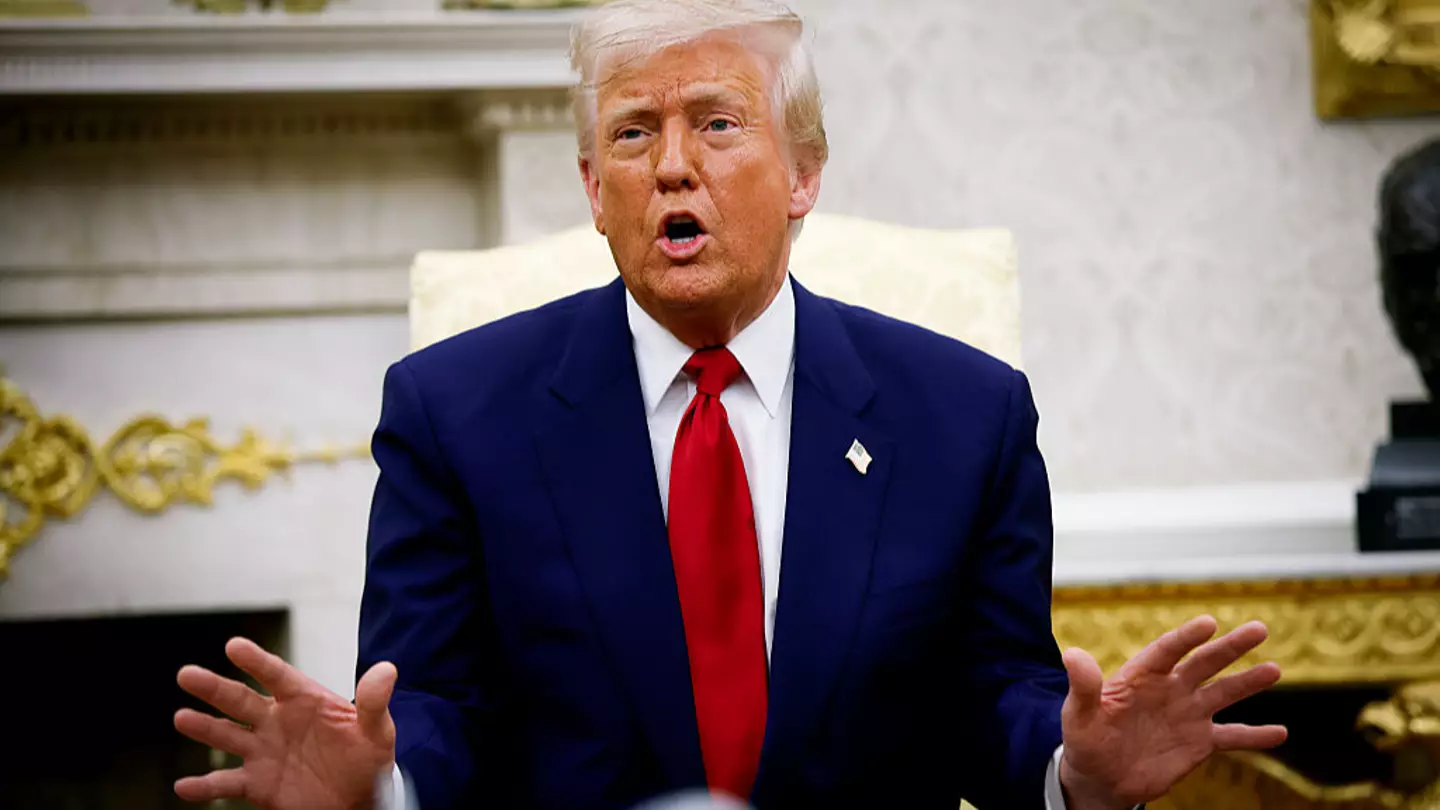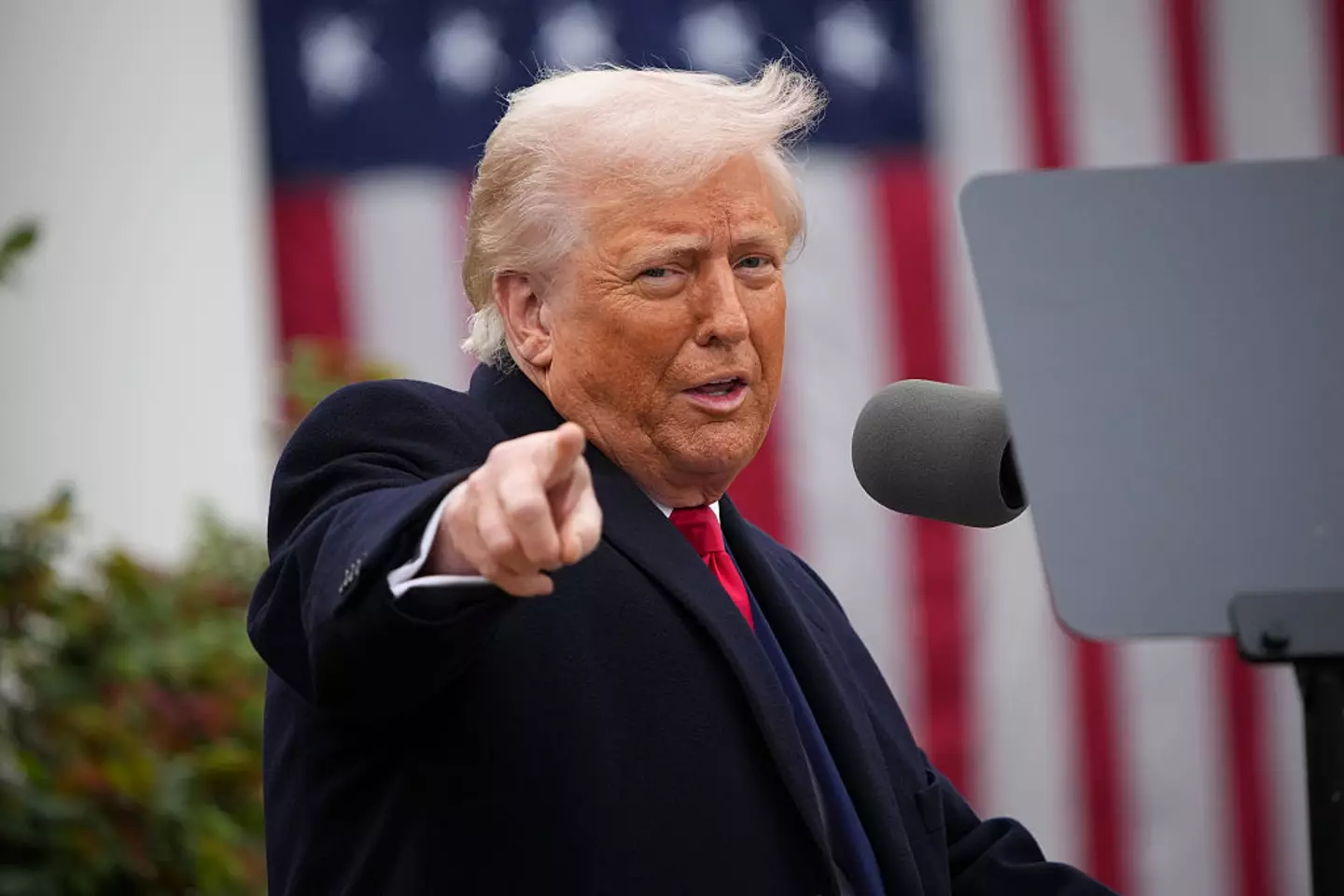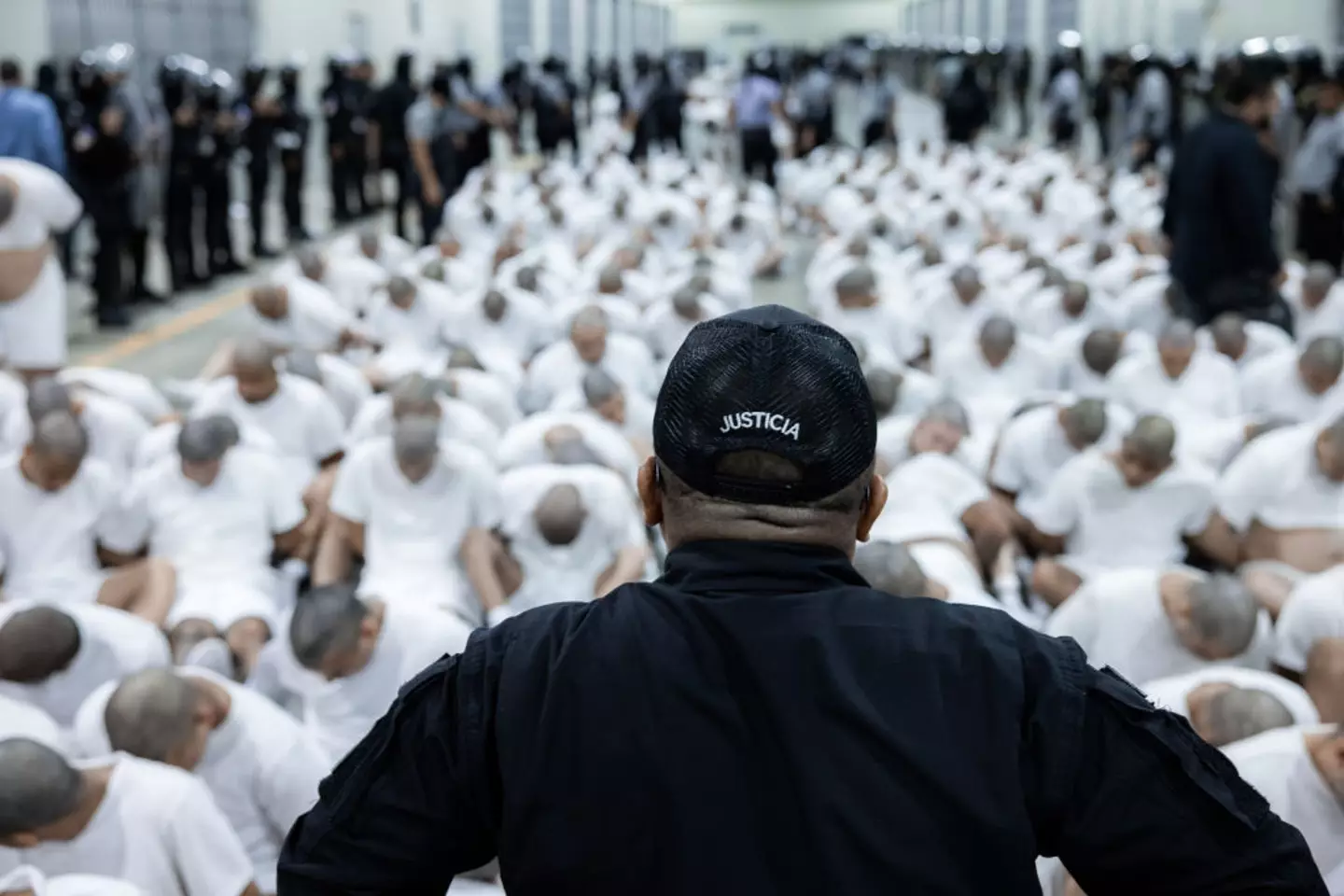
The president is celebrating after the Supreme Court gave the green light on using an 18th-century law last used during World War Two to fuel mass deportations.
Since Donald Trump was sworn into office on January 20, the POTUS has been brainstorming initiatives to reduce immigration in the US.
Within weeks, he signed a slew of executive orders to 'reclaim control' of the the borders and, to this end, re-established a piece of wartime legislation to deport migrants who have been accused of crimes while bypassing legal proceedings like court challenges.
The Alien Enemies Act of 1798, a relatively unknown 18th century law, was created in response to spying and sabotage during tensions with France at the time, and was passed shortly after the US was liberated from the British Empire.
Advert

According to the act, it can be invoked during a 'declared war' or 'any invasion or predatory incursion' against the US government from a foreign government.
Until the President terminates it, it can remain in action for however long as necessary.
It has already been used a handful of times in the US throughout history - the last being to justify internment camps for Japanese, German and Italian citizens, who were the Axis powers at the time, during the Second World War.
Now, it is being used by the Trump administration to sign off on the detention and deportation of citizens of an 'enemy' nation, and at least 137 people have been removed under the Act already.
Just last month, as many as 261 people accused of being involved in the Venezuelan gang Tren de Aragua or the MS-13 gang were deported out of the states and into the infamous El Salvador mega-jail CECOT with the help of the law.
A lower court had tried to block the deportations on 15 March, as American Civil Liberties Union (ACLU) argued that the Act needed further scrutiny, reports the BBC.
Yet the Supreme Court has given the President the power to use the law to speed up deportations of alleged gang members as of Monday (April 7) - at least for now.

The justices gave the plan the green light but said deportees must be given the opportunity to challenge their removal.
"The notice must be afforded within a reasonable time and in such a manner as will allow them to actually seek habeas relief in the proper venue before such removal occurs," the justices wrote in an unsigned decision.
"The only question is which court will resolve that challenge," they added.
Still, Trump is celebrating the notice as a victory, writing on his Truth Social platform: "The Supreme Court has upheld the Rule of Law in our Nation by allowing a President, whoever that may be, to be able to secure our Borders, and protect our families and our Country, itself.
"A GREAT DAY FOR JUSTICE IN AMERICA!"
Meanwhile, the ACLU is also describing the ruling as a 'victory'.
Lead ACLU attorney Lee Gelernt said in a statement: "We are disappointed that we will need to start the court process over again in a different venue but the critical point is that the Supreme Court said individuals must be given due process to challenge their removal under the Alien Enemies Act."
Topics: Donald Trump, US News, Politics, Court, Crime